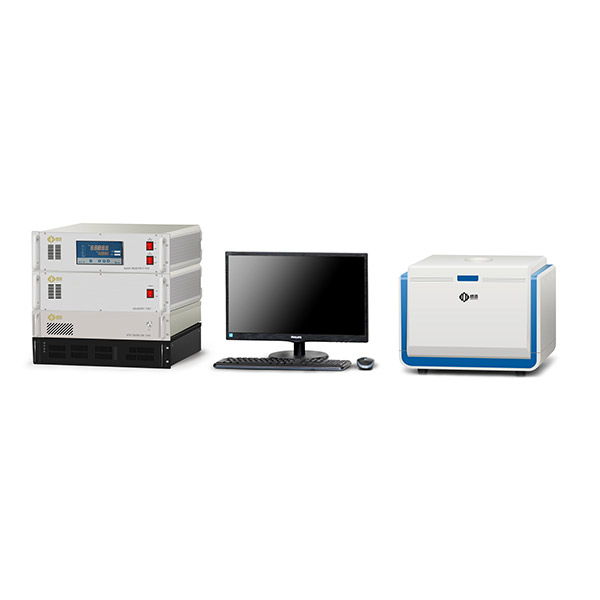Resonancia magnética nuclear (RMN) utilizes the interaction between a static magnetic field and the magnetic moments of atomic nuclei in a superimposed electromagnetic alternating field.
El low-field NMR analyzer (solid-state NMR used for relaxation examination uses a static magnetic field of 1 Tesla or less, and the operating frequency is between 10 MHz and 50 megahercio. Due to its relatively small size and simple operation, it has great potential in quality control and industrial applications. Pulse sequences such as Hahn-Echos and CPMG are used. The longitudinal relaxation time (spin lattice relaxation time) t1, the transverse relaxation time (spin-spin relaxation time) t2 and the signal amplitudes A1 and A2 are explained and analyzed.
Application areas include the inspection of elastomers and rubbers (such as crosslink density), the determination of the phase composition of polymer mixtures, or the degree of crystallization of thermoplastics. En particular, it is possible to determine the content of proton-rich phases such as oil, grease, water or plasticizers in the polymer. Even processes that change with time and temperature, such as aging, crystallization, and relaxation properties, can be detected with low-field NMR analyzer.
In addition to the described low-field NMR analyzer for temperature-dependent relaxation inspection and analysis of single-sided, spatially resolved, flat specimens (sections), Fraunhofer LBF can also use various high-resolution NMR spectrometer for chemical analysis.
Although not so useful in chemical analysis, in some applications, low-field spectrometers can provide sufficient resolution for NMR analyze, such as QA/QC and reaction monitoring. This has triggered a renaissance in the development of permanent magnet technology because permanent magnets have better facilitated the integration of NMR technology into routine industrial analysis-in the field laboratory or even on a truck.

 mohoso
mohoso